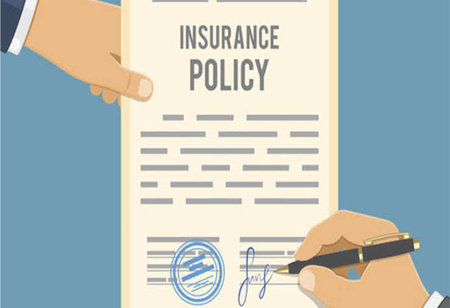Important Insurance Policies to Have When You Are Self Employed
By Sthitaprajnya Panigrahi
 Motivated by the ‘Make in India’ campaign, many young graduates prefer to initiate their own business rather than general employment. Apart from the flexibility of working hours and immense opportunities to prove your ability, self-employment or entrepreneurship has its own set of perks which makes it different from traditional 9 to 5 jobs. Although it’s quite challenging and adventurous to venture out and start something you love to do genuinely, it is important to understand that the business world is prone to many ups and downs. To immune business from any kind of adversities that are supposed to play a hindering factor in the future, many industrialists opt for insurance policies. A proactive measure to secure the business, insurance policies has emerged out as a necessity rather than an option. For a visionary entrepreneur who has employees working underneath, holds assets such as offices and machinery, and is in possession of shares in the market, insurance policies is a must-have factor to protect employees, resources, assets, and revenues from any kind of liabilities.
Motivated by the ‘Make in India’ campaign, many young graduates prefer to initiate their own business rather than general employment. Apart from the flexibility of working hours and immense opportunities to prove your ability, self-employment or entrepreneurship has its own set of perks which makes it different from traditional 9 to 5 jobs. Although it’s quite challenging and adventurous to venture out and start something you love to do genuinely, it is important to understand that the business world is prone to many ups and downs. To immune business from any kind of adversities that are supposed to play a hindering factor in the future, many industrialists opt for insurance policies. A proactive measure to secure the business, insurance policies has emerged out as a necessity rather than an option. For a visionary entrepreneur who has employees working underneath, holds assets such as offices and machinery, and is in possession of shares in the market, insurance policies is a must-have factor to protect employees, resources, assets, and revenues from any kind of liabilities.
Starting out as an entrepreneur, the insurance policies which are important from a business perspective to sustain and survive the corporate world are mentioned below:
- Credit Insurance: Credit insurance is intended to protect the business when a certain client fails to deliver the payable amount after the service. The business in which the income from a client is a key factor, credit insurance will be helpful in covering the total cost of business operation or selected contracts of specific customers.
- Employer Liability Insurance: One of the compulsory insurance policies for any business, employer liability insurance covers the cost of employees during any kind of illness or injury-related claims.
- Professional Liability Insurance: Also known as professional indemnity insurance, this insurance protects the professionals such as doctors, lawyers, and accountants, from any kind of negligence and damage reported by the clients.
- Product Liability Insurance: This insurance covers the damage caused by the products manufactured by the company significantly, either by hurting/killing someone or vandalizing property. For business sectors related to food and beverage, electrical equipment manufacturing, and construction, product liability insurance is one of the most important factors to take into consideration.
- Key Man Insurance: This insurance deals with the financial loss suffered by the business due to severe illness or demise of a crucial employee of the company including the owner, director, manager, or someone with specific skillset valuable for the company.
- Property Insurance: Providing protection from any kind of financial loss due to the damage of properties like buildings, contents, and equipment, property insurance is counted as one of the most important insurance policies to be purchased by the employer. It covers the cost of damages to properties due to fire, floods, earthquakes, or simply the wear and tear of equipment.
- Goods in Transit Insurance: If the business deals with transportation, warehousing, and logistics, then goods in transit insurance can be beneficial insurance to purchase for the company. It will cover the claims of goods damaged or lost during transportation via rails, roads, air, and water which fail to reach the destination.
- Relevant Life Insurance: Similar to normal life insurance policies, relevant life insurance is purchased by the employer to pay the family of the employee in case of his/her sudden demise. It is a tax-effective policy, which benefits the employee’s family or financial dependants.




